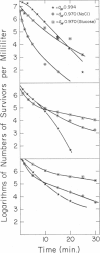Abstract
Cells of Escherichia coli, Pseudomonas fluorescens, and Staphylococcus aureus, previously grown in Trypticase Soy Broth (TSB) at a high level of available moisture (aw 0.994) and at low levels produced by addition of NaCl or glucose, were heated in neutral phosphate buffer, and in this buffer adjusted to low levels of available moisture by means of NaCl or glucose. Glucose in the heating medium was more protective than NaCl for E. coli and P. fluorescens, but hastened the thermal destruction of S. aureus. Added protection was given P. fluorescens during heating in glucose-buffer solution at aw 0.97 by previous growth in TSB adjusted to that aw value with glucose. Added protection was given E. coli during heating in NaCl-buffer solution at aw 0.98 by previous growth in TSB adjusted to that value with NaCl. With S. aureus, however, previous growth in TSB plus NaCl or glucose had little effect on heat resistance, but the solute in the heating medium had great influence, in that NaCl was very protective and glucose destructive. Opportunity may have been given during tempering of the cell suspension at 30 C in the heating medium prior to heating for the NaCl and glucose to diffuse into the staphylococcal cells.
Full text
PDF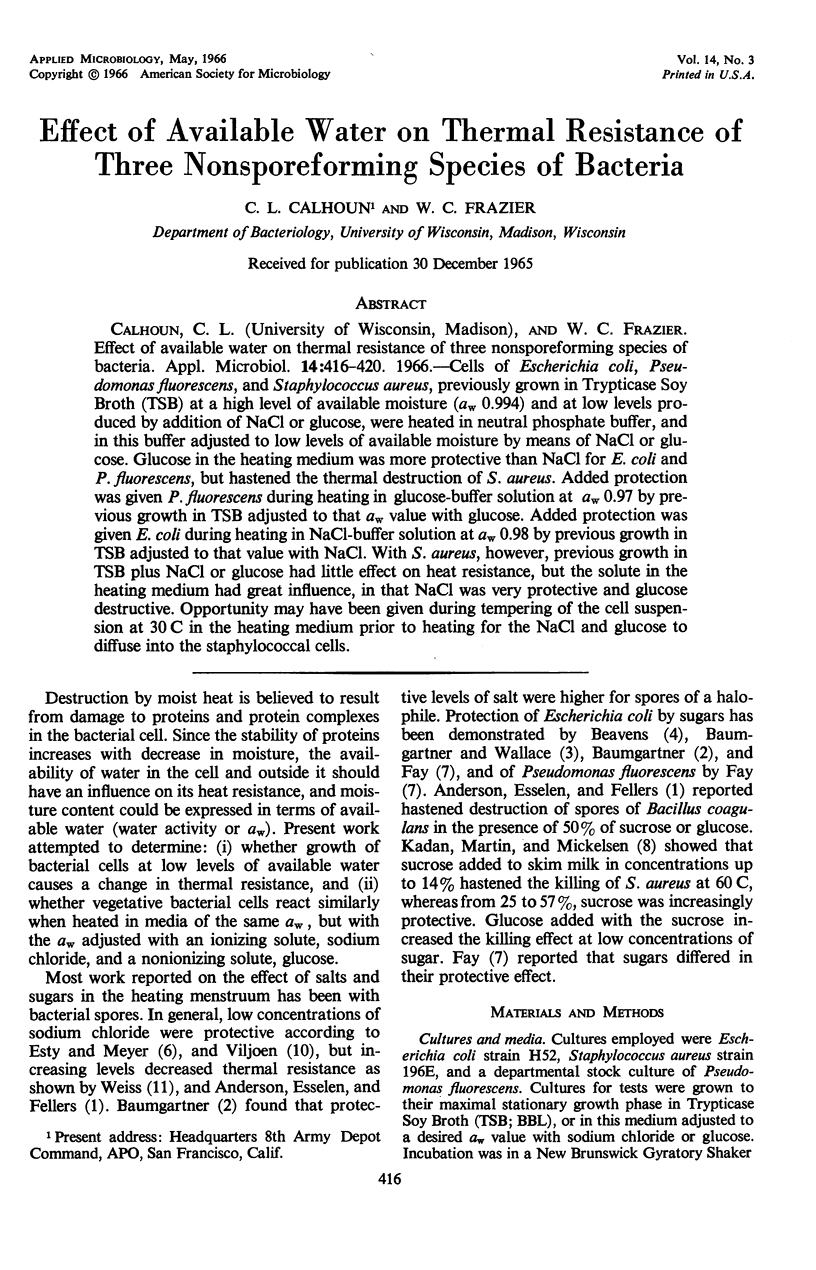
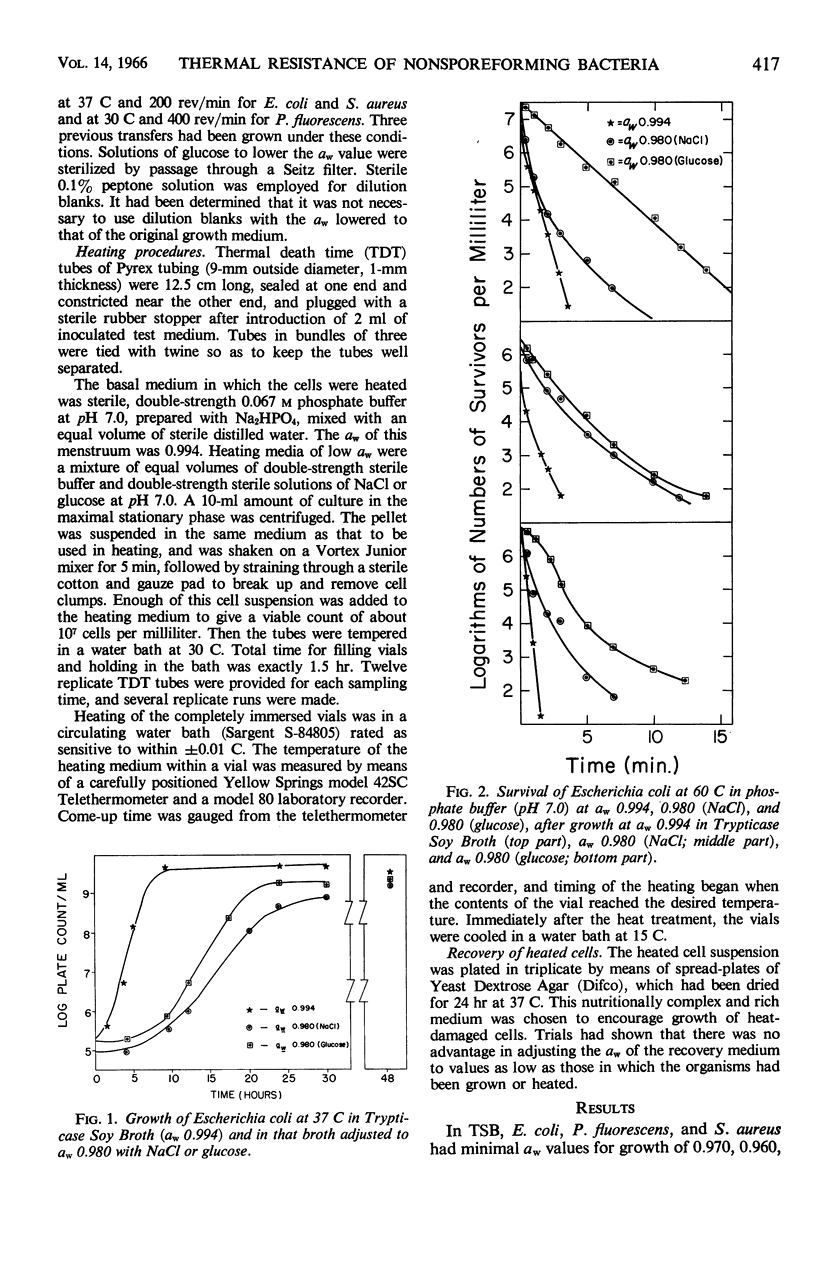
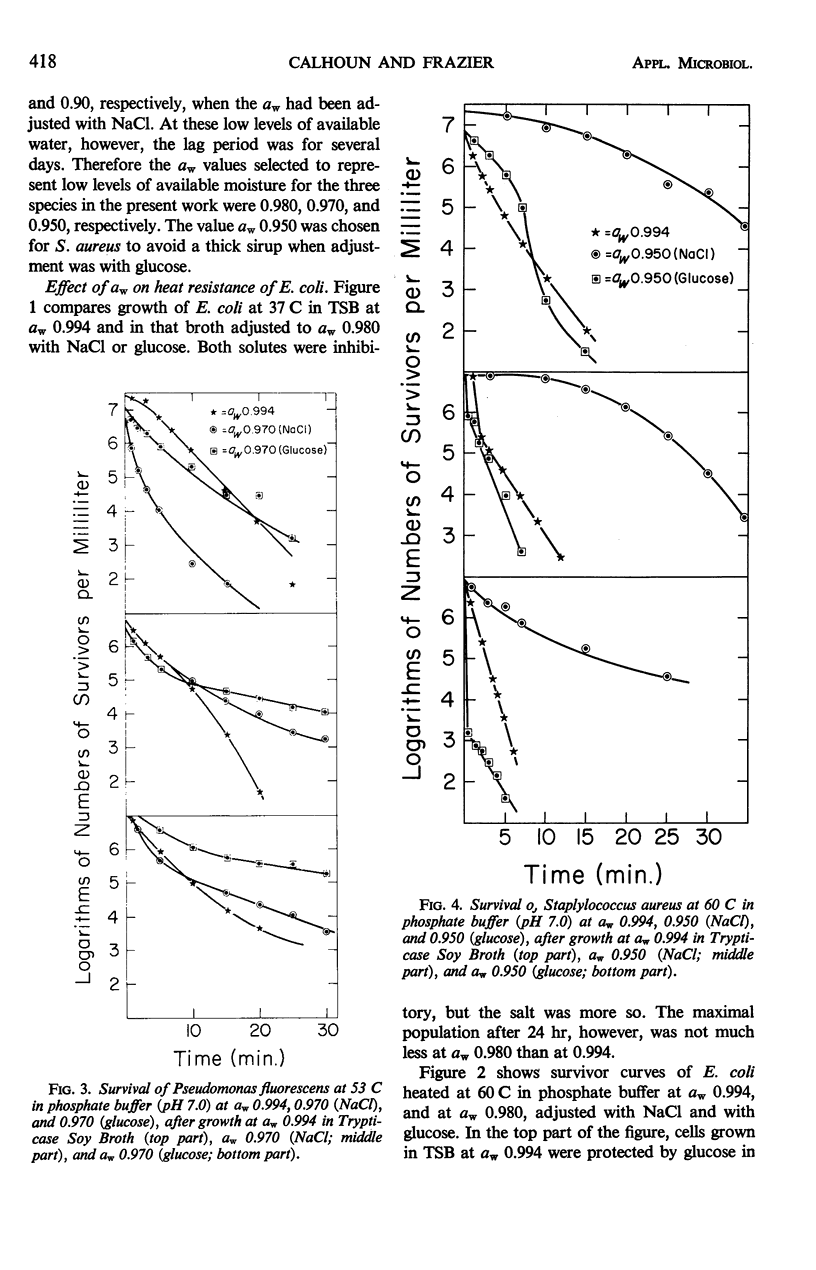
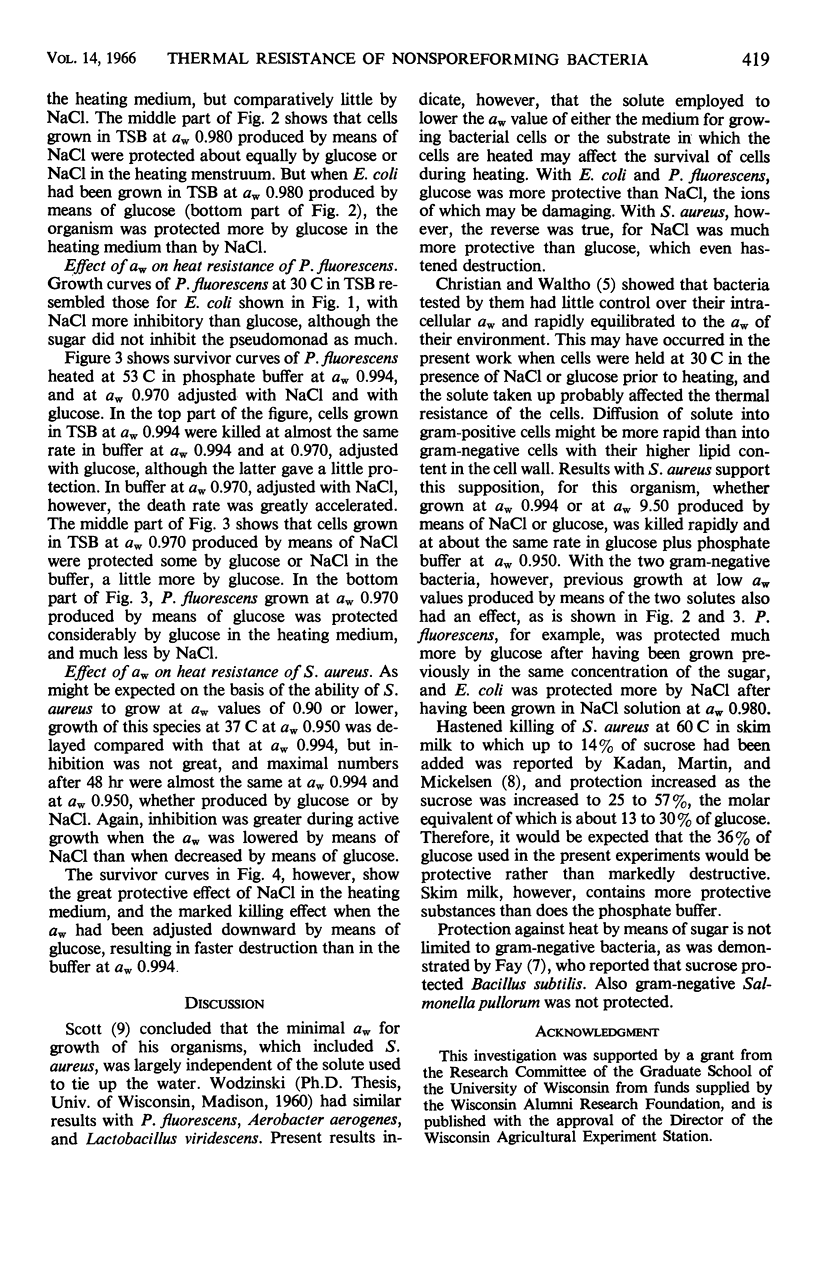
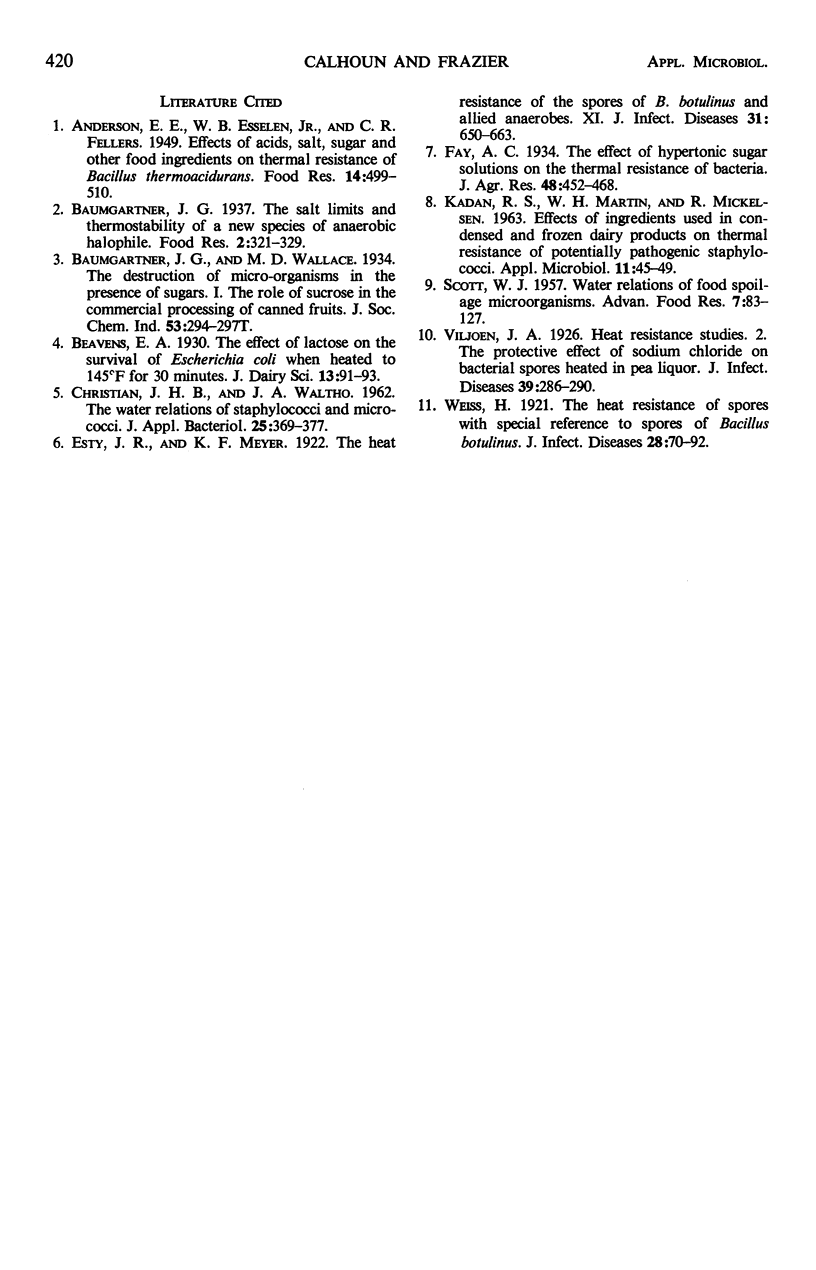
Images in this article
Selected References
These references are in PubMed. This may not be the complete list of references from this article.
- ANDERSON E. E., ESSELEN W. B., Jr, FELLERS C. R. Effect of acids, salt, sugar and other food ingredients on thermal resistance of Bacillus thermoacidurans. Food Res. 1949 Nov-Dec;14(6):499–510. doi: 10.1111/j.1365-2621.1949.tb16261.x. [DOI] [PubMed] [Google Scholar]
- KADAN R. S., MARTIN W. H., MICKELSEN R. Effect of ingredients use in condensed and frozen dairy products on thermal resistance of potentially pathogenic staphylococci. Appl Microbiol. 1963 Jan;11:45–49. doi: 10.1128/am.11.1.45-49.1963. [DOI] [PMC free article] [PubMed] [Google Scholar]



